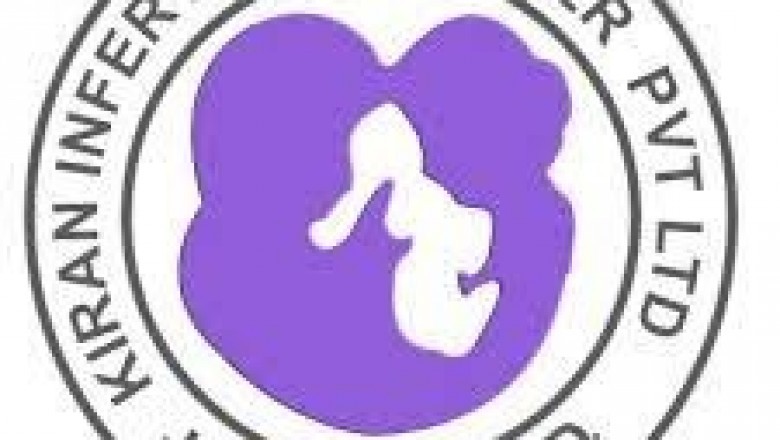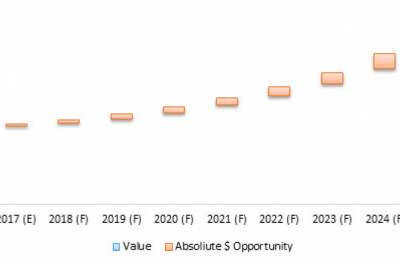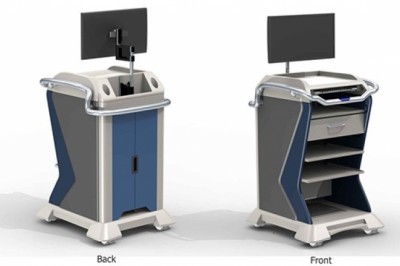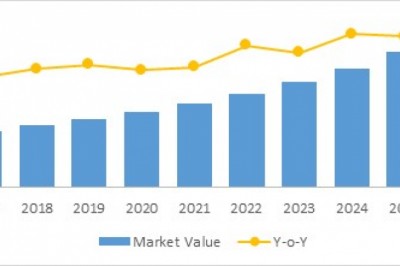views

Kiran Infertility Center In Hyderabad
IVF Clinic in Hyderabad
What is IVF?
In Vitro Fertilization is an ART Treatment is commonly referred to as IVF. IVF is the process of fertilization by extracting eggs, retrieving a sperm sample, and then manually combining an egg and sperm in a laboratory in an IVF clinic in Hyderabad. The resultant embryo(s) is then transferred to the uterus.
Other forms of ART include gamete intrafallopian transfer (GIFT) and zygote intrafallopian transfer (ZIFT).
The above 2 forms are not in vogue today and only IVF is followed as a universal treatment
Why IVF?
IVF is suggested to treat infertility in the following patients:
Patients with blocked or damaged fallopian tubes
Male factor infertility involving moderate to low sperm count or sperm motility
Females with ovulation disorders, premature ovarian failure, or with uterine fibroids
Females with fallopian tubes removed
Individuals with known genetic disorders
Unexplained infertility
How to Begin an IVF Cycle?
A patient planning to undergo IVF should visit the IVF clinic in Hyderabad on day 1 or 2 of her menses. A
the medical consultant will advise the patient on instructions as to when to schedule her next visit to the clinic along with the probable IVF Cost in Hyderabad for the first shots of IVF for an Antagonist cycle or visit on day 21 of the menstrual cycle in case of a down-regulated cycle.
IVF Medications
Spontaneously a cycling woman will ovulate only one egg each month. To increase the chance of obtaining a pregnancy, an effort is made to obtain as many eggs as possible. Fertility drugs achieve this goal.
For this purpose, each patient’s medication plan is individualized, but most IVF regimens include one or more of the following:
GnRH Agonist
GnRH Agonist is used to helping create equally mature eggs. Statistics indicate that GnRH agonists may be associated with higher success rates and lower IVF cycle cancellation rates.
HMG (Human Menopausal Gonadotropin), is administered by intramuscular injection
Recombinant FSH
Staff at KIC will advise the patient and her partner to reconstitute the different medications and administer the injections at Kiran Infertility Centre or at their places through the help of physicians at their place, in case the patient is from out- of- station. Most of the patients and their partners have little trouble getting used to these shots.
Patient Monitoring
The growth and development of the eggs are closely monitored by repeated ultrasound studies and blood tests for hormone levels (Estradiol and Progesterone)Patients are usually advised to come to KIC for blood tests and sonograms to determine the maturity of their developing eggs beginning on cycle day 3, 5, 7 or 9. Then further monitoring will be carried out as needed until the eggs are determined to be mature. Occasionally, some patients will need daily monitoring near the end of the ovarian stimulation phase of the cycle.
Blood Tests
Patients usually have to undergo two or three blood tests during the course of the monitoring process.
Estradiol (Estrogen) and Progesterone levels are monitored. Estradiol levels allow us to approximate the relative maturity of the eggs. Usually, the test displays between 100 and 200 units of estrogen for every mature egg.
Progesterone tells us if the eggs are becoming overripe, the patient’s progesterone level, which depends on the number of egg follicles created, should generally be below two units.
Sonograms
The maturity of the follicles developing in ovaries is monitored via vaginal ultrasound. During this painless procedure, a radiologist inserts a small probe in the vagina. This enables visualizing the ovaries and the uterus, to evaluate the maturity of the Endometrium (the inner lining of the uterus), and to count and measure the follicles developing in each ovary. A mature follicle measures from 16 to 22 millimeters.
Advance technology of Color Doppler study is used at KIC to monitor the blood in the follicle and Endometrium.
The Final Step to Egg Maturation
When blood tests and sonograms indicate that the eggs are mature (size of 18mm or more), the patient will be administered a final injection called HCG (Human Chorionic Gonadotropin) to complete the maturation process of the egg. The HCG shot must be taken at KIC on the specified date, and the retrieval is scheduled later after around 36 hours after the HCG injection.
(Example: if a patient’s Monday monitoring showed her follicles to be of the appropriate size and her estrogen levels were found to correlate with maturity, she would be instructed to take her HCG between 9:00 PM and 11:00 PM Monday evening. Her egg retrieval will then be performed on Wednesday morning at Kiran infertility center)












